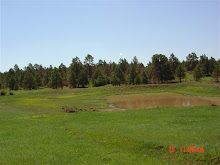Many of us don't give natural gas pipelines much thought; however, they are an inevitable part of the development process. Unfortunately, allowing a pipeline to be installed across your property is not always a choice. Pipelines inherently pose hazards of their own because they transport such a volatile substance. I have been told by a New Mexico rancher who lives with wells and pipelines on his property, that he is always hitting the pipeline with his plow because companies are only required to install them four inches below the surface.
By Elizabeth Skrapits (Staff Writer)
Published: May 17, 2010
DALLAS TWP. - When the men first came around, Emily Sallitt thought they were utility workers talking about a gas line for her home.
"They said, 'oh, you can't use this gas, it's dirty gas,'" she said. "Then when I looked it up, I said, 'oh my glory, those were the gas men."
And Emily and her husband, Joseph, wanted no part of what they were after.
Chief Gathering LLC, a subsidiary of Dallas, Texas-based Chief Oil & Gas LLC, has been sounding out landowners in Franklin and Dallas townships to see if they are willing to grant the company a right-of-way to run a natural gas pipeline through their properties.
The most productive natural gas well in Pennsylvania isn't worth much unless there's a way to get the gas to market. As drilling companies flock into the state to exploit the gas-rich Marcellus Shale, the need for connections to natural gas pipelines is growing.
The Sallitts' 12-acre property on Upper Demunds Road, less than a mile from the Dallas school district where they taught before retirement, was one of those eyed by Chief for a right-of-way acquisition.
The 1950s-vintage Transco pipeline, owned by Tulsa, Okla.-based Williams Partners LP, is an interstate natural gas pipeline system that runs from south Texas, through the Gulf Coast and up the Eastern Seaboard. It runs through Dallas, near the Sallitts' house.
Part of the Sallitts' backyard is fenced off as a pasture for Emily's horse, Doba. Much of it is woods; they leave it that way for the wild animals, she said.
The gas company would have to clear-cut a strip of the property to lay the pipe, Emily Sallitt said.
"We would have lost all this, all this privacy, part of the horse pasture," she said, indicating the woods separating her property from the neighbors.
The natural gas company drilling Luzerne County's first exploratory wells, Encana Oil & Gas USA Inc., is tapping into the Transco pipeline, which is conveniently close to the Fairmount Township property where one of the wells will be located.
But Chief's planned drilling sites are directly to the north of Luzerne County, miles away from Transco, which is the closest pipeline.
Records from the state Department of Environmental Protection show Chief has permits to drill in 11 counties, including at Springville, Lathrop and Lenox in Susquehanna County and Nicholson in Wyoming County.
Chief has drilled in Lycoming County since 2007, has wells under way in Bradford and Susquehanna counties, and wants to drill in Wyoming County, but not for a couple of months, spokeswoman Kristi Gittins confirmed. Chief has also been purchasing rights-of-way all over Northeastern Pennsylvania and has 170 miles' worth already, she said.
However, the company has not set a definitive plan for a pipeline to tap into the Transco in Dallas, she said.
"There's a whole list of permits and approvals that would have to be received," Gittins said. "And sometimes there are route changes because there's something amiss in the areas. … When we start working in an area, my team does community affairs, and this isn't even on our radar."
Chief wouldn't even begin putting down pipeline until the new sites are drilled and prove worthwhile. Laying pipeline is expensive, and it costs more than $1 million to tap into Transco, she said.
"You don't lay pipeline first, unless you're in an area where you know there has been a lot of drilling and production," Gittins said. More>>>





